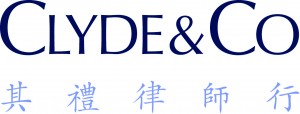15 April, 2016
Introduction
On 30 December 2015, the State Administration for Industry and Commerce ("SAIC") in China issued a new regulation – the Interim Measures for the Administration of the List of Dishonest Entities Committing Serious Illegal Activities (《严重违反失信企业名单暂行管理办法, the "Interim Measures") – blacklisting “dishonest entities” who engage in bribery and corruption. The Interim Measures will come into force on 1 April 2016.
In this update we look at the key provisions of the Interim Measures, their potential impact on the marketplace and what Chinese companies should look out for.
Key provisions of the Interim Measures
The Interim Measures were issued after a consultation process where SAIC sought opinions from the general public and other state departments. They reflect the provisions of the Cooperation Memorandum on the Coordinated Supervision of and Joint Discipline and Penalty against Dishonest Entities (《失信企业协同监管和联合惩戒合作备忘录》) which was jointly issued by 38 departments at state level (including the National Development and Reform Commission) and SAIC.
The Interim Measures are relatively brief, comprising 21 articles. They apply to all companies that are registered under Chinese law and are subject to the administration of the SAIC and its equivalent bodies at local level.
Article 5 of the Interim Measures sets out the circumstances where a company may be blacklisted, which include, but are not limited to, situations where:
- A company has been penalised for unfair competition activities (such as commercial bribery) three or more times within two years;
- A company has had its registration revoked for submitting false materials or concealing other important facts by fraudulent means from the authorities; and / or
- A company has been penalised three or more times within two years for violating consumers' rights by providing unsafe products or services.
The Interim Measures aim to crack down on dishonest companies by implementing various punitive measures, including:
- Exercising stricter control and supervision over the business activities of dishonest companies;
- Prohibiting the representatives of dishonest companies from taking up positions in other companies for three years; and
- Marking the company as a dishonest enterprise in the publically accessible Enterprise Credit Information System.
- These measures will be administered by an administration authority which will also be tasked with sharing information with other governmental departments and implementing joint sanctions on dishonest companies.
Comment
Bribery and dishonesty create inefficiencies in markets and lead to the misallocation of resources, unfair competition and distorted prices, all of which ultimately distort the market and disadvantage consumers. By blacklisting dishonest companies, the government aims to stamp out these practices and create a level playing field for companies and consumers alike.
The consequence of being blacklisted can be very severe and far reaching, particularly on a company's reputation.
Accordingly, Chinese registered companies would be well advised to carefully review their daily business activities to make sure they are in full compliance with the relevant laws and regulations.
We would also recommend to Chinese registered companies that they ensure they have a compliance system in place, including regular training for relevant staff on anti-bribery and anti-corruption legislation. It is also recommended that companies keep up to date with developments in law to make sure their business activities comply at all times with relevant laws and regulations. When in doubt, companies should seek advice from external counsel. Bribery and corruption are serious crimes with serious consequences and ignorance of the law is no defence. As with all matters related to compliance, it is far better to be safe than sorry.
For further information, please contact:
Richard Bell, Partner, Clyde & Co
richard.bell@clydeco.com






